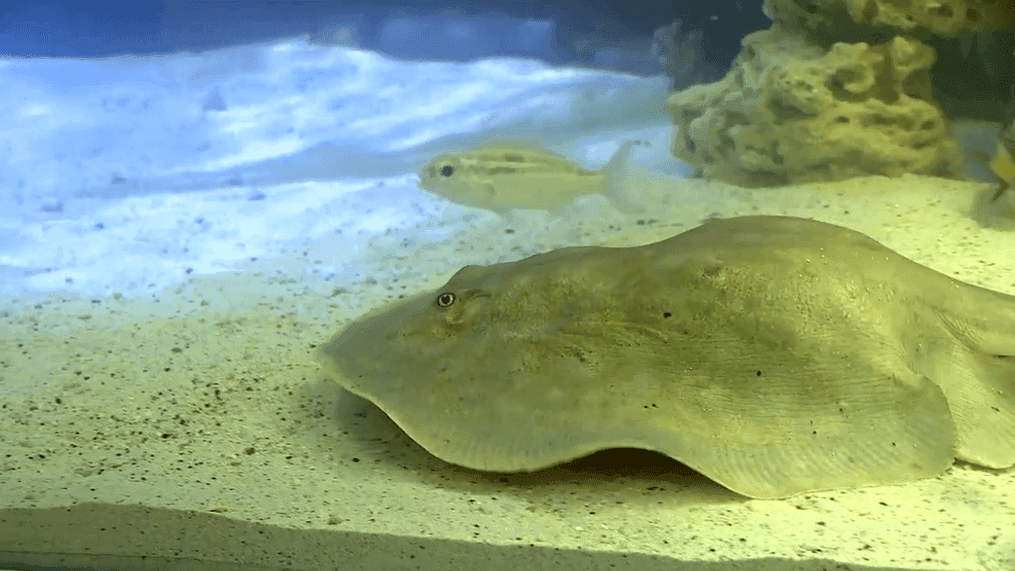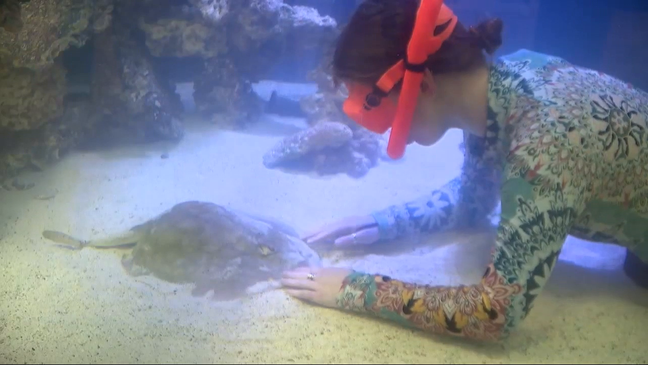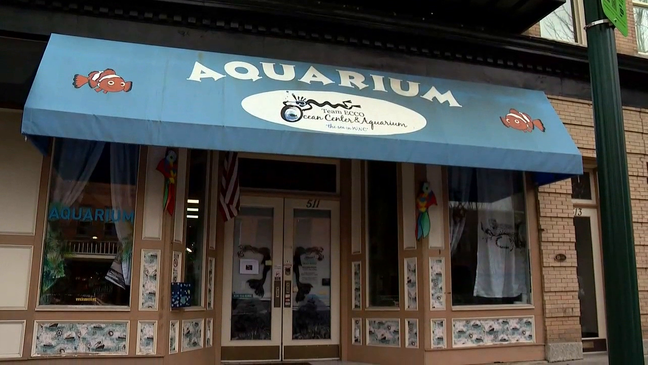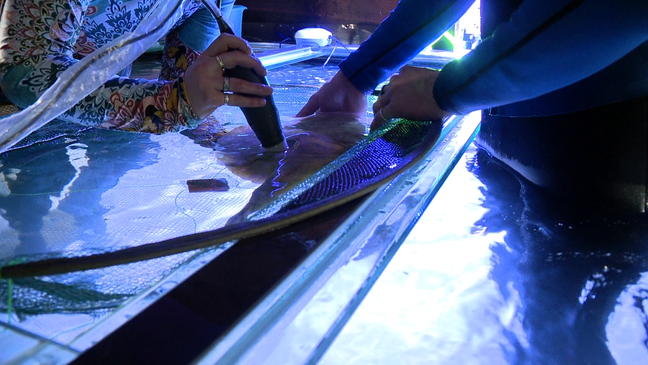Marine biologist: Why Charlotte the stingray might be having a longer-than-usual pregnancy
HENDERSONVILLE, N.C. (WLOS) — In downtown Hendersonville, Charlotte the stingray has gained international fame due to what is believed to be her parthenogenesis-induced pregnancy.
Parthenogenesis is a form of reproduction where an egg develops without being fertilized by sperm.
It's been more than three months since News 13 crews first visited the Team ECCO Ocean Center and Aquarium.
“I see them (Team ECCO) as being really important ambassadors and a lot of the people that keep these animals are really good at what they do and they know how to keep the animals safe and healthy,” said Dr. Chris Lowe.
'MIRACULOUS BIRTH' EXPECTED FROM STINGRAY WITH NO MATE, POSSIBLY IMPREGNATED BY SHARK
Charlotte has yet to give birth; and according to Dr. Lowe, a professor of marine biology and the director of the shark lab at California State University Long Beach, there could be a few reasons.
Charlotte, according to the Team ECCO Facebook page, has been pregnant since around December.
“In southern California, it looks like anywhere from three to four months is typical in terms of their gestation rates, but a lot of that is dependent on water temperature,” said Dr. Lowe. “Gestation can speed up under warmer conditions and slow down under cooler.”
It has now been more than three to four months.
HENDERSONVILLE BUSINESSES BENEFIT FROM CHARLOTTE THE STINGRAY'S FAME
“We don’t fully understand why parthenogenesis occurs and under what conditions, and, in fact, it doesn’t look to be terribly successful," said Dr. Lowe. "In fact, a lot of the offspring don’t do well and many of them don’t survive.”
Dr. Lowe said Charlotte's pregnancy could be taking longer than normal due to diapause.
“Diapause is this temporary stop of development, and it turns out that, in rays, this is somewhat common, so if the female is stressed, if she’s nutritionally underweight, she might actually put her embryos on pause,” he said.
Lowe said there are a handful of labs capable of measuring Charlotte's stress hormones via a blood sample, similar to how stress is monitored in humans.
“Or it could be, even, that the embryos are not surviving or have died, and she is re-absorbing them to take those nutrients in," she said. "So, sometimes they’ll abort embryos that just aren’t well or have died, and, in some cases, they’ll reabsorb some of the eggs and things like that aren’t going to be viable.”
In their most recent Facebook post on May 8, the aquarium noted Charlotte changed very little since their last update but says they have "expanded support and medical teams of qualified veterinarians for additional testing."
The comments on the May 8 post were muted; commenters on previous Facebook posts continue to want to know more.
“I think people are just going to have to be patient," said Dr. Lowe. "One way or the other, something is going to come out, and they may be dead, but we’ll see.”




